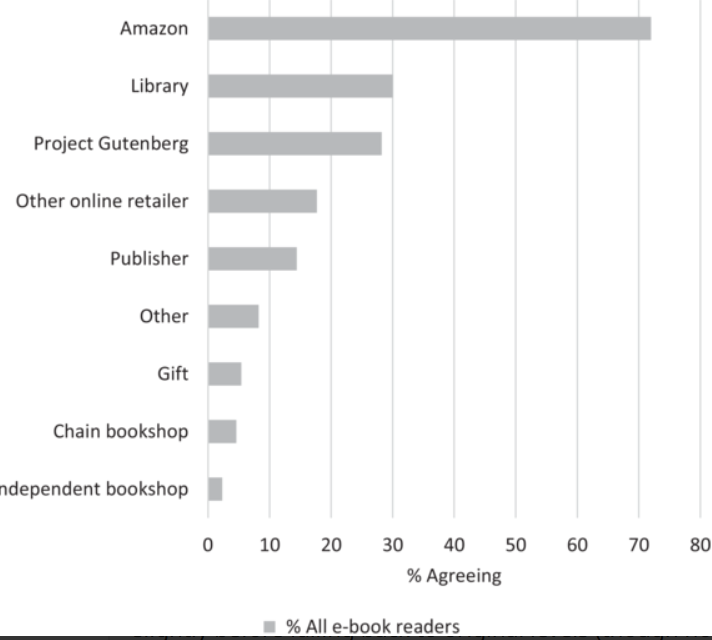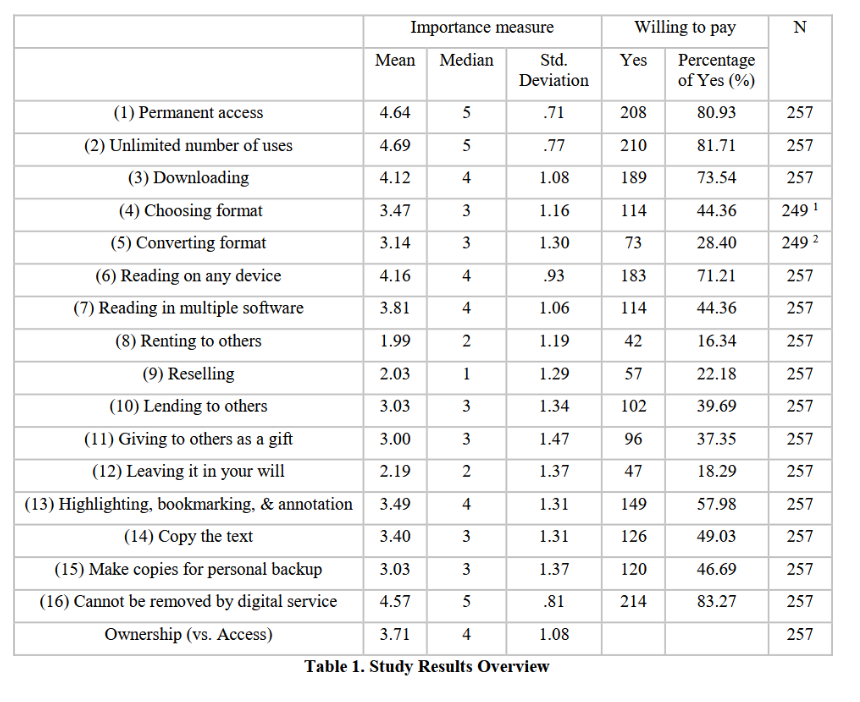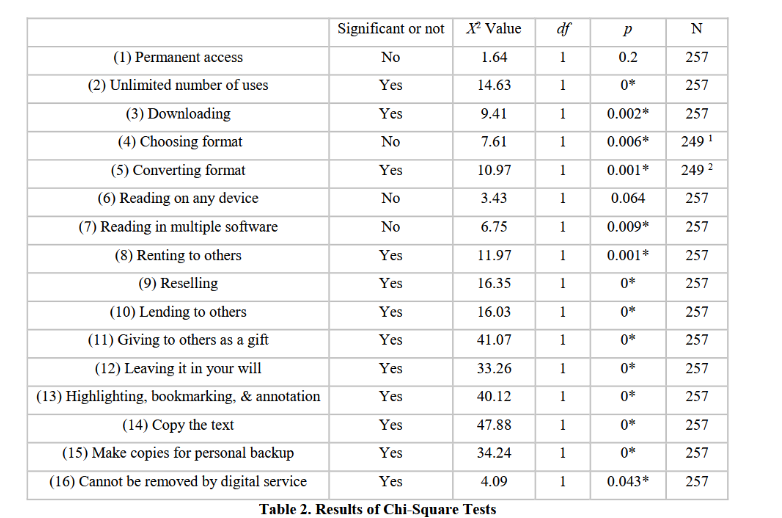CONSUMER PERCEPTIONS OF E-BOOK OWNERSHIP
The issue of consumers not knowing the reality of e-book ownership is a common issue identified by many researchers.
The first of these researchers is Dietz. In their book 'E-book and Real Books' Dietz creates a survey to better understand the e-book reading habits and perceptions by common consumers.
Data is drawn in the first instance from surveys, focus groups, and interviews with readers and writers. The survey (n = 1,732) was conducted yearly from 2014 to 2017 and again from 2020 to 2022. Additional material, including journalism, social media posts, author websites, and Amazon terms and conditions, was sought out to further investigate questions and themes identified in the surveys, focus groups, and interviews,17 and interpreted using qualitative content analysis.(Dietz, 2025)
In her survey she questioned the participants about where they purchase their ebooks, finding that a large portion purchased from amazon

She further questions participants to find out how clear ownership restrictions are for the consumers of e-books.
Understanding varies across consumers with many understanding the restrictions put upon them by companies like Amazon, with others being uncertain or even misinformed. Many participants pointed out dissatisfaction with the standards of ownership that have become common and accepted for e-books
Some elements are identified as particularly important for the consumer to feel as if they "own" a digital book including: the ability to share the book, the feeling of adding a book to their personal library, and the lack of risk of content being deleted.
The idea, widely shared and deeply felt, that readers have a natural right to own, keep, and give away e-books in the same way they do print books indicates a sense on a profound level that e-books are books, enjoying realness and bookness. However, viewing e-book legitimacy through the lens of ownership reveals the ways that readers not only hold seemingly contradictory senses of e-book realness but also toggle pragmatically between them as the situation demands.(Dietz, 2025)
Though the licensing model has been standard for E-books for years, the language surrounding E-book's makes it confusing for consumers. The 'Buy Now' button on Amazon for Kindle books misleads people to believing that the materials they are purchasing are their own to share as they wish. There is little distinction made between the meaning of ownership with physical books and E-books despite them being entirely different mediums. The next page will focus on these consumer perceptions and how the language surrounding E-book ownership breeds confusion and dissatisfaction.
Xiaohua Zhu, in their article Digital Ownership: The Case of E-books, presents an empirical research study in which an online survey was used to examine consumer perspectives of e-books and digital ownership and rights. The research and survey hopes to answer the following research questions:
RQ1: What ownership rights are considered essential for consumers to feel they own an e-book? RQ2: What ownership rights are consumers willing or unwilling to alienate for the cost factor? RQ3: Are there generational gaps in people’s perception of digital ownership rights?Results: Eight participants said they did not use e-book services. The rest used Amazon (200), Overdrive/Libby (77), Google (61), Barnes and Noble (58), iBooks (51), and Scribd (23). Participants ranked 16 rights associated with digital ownership. The results are in the table
 This data shows the aspects of e-book ownership that are most important to consumers. With this data we can see that unlimited numbers of uses, permanent access, the inability to be removed by digital service, and the ability to read on any device and in multiple software. This aligns with many of the consumer desires represented by Dietz in her book.
This data shows the aspects of e-book ownership that are most important to consumers. With this data we can see that unlimited numbers of uses, permanent access, the inability to be removed by digital service, and the ability to read on any device and in multiple software. This aligns with many of the consumer desires represented by Dietz in her book.
To answer research question 2, Xiaohua Zhu assessed how likely it is that consumers will be willing to pay for different ownership rights. The results of that test are in the table.

This shows that the more important a consumer ranked a right as, the more likely they are to be willing to pay. The exceptions are with permanent access and the ability to read on any device, suggesting that these are important enough to consumers to be dealbreakers
In the article ‘Consumer interpretations of digital ownership in the book market’, the researchers interviewed focus groups about their usage of digital technologies and e-books. There were four focus groups, divided by generation, with 31 participants total.
The results: 6 main themes: a constricted sense of ownership limits the digital book usage experience, limited control over digital books hinders social exchange and bonding, digital books preclude development of attachment, a sense of self, and belonging, a minimalist lifestyle encourages a preference for digital books, preference for value-in-use encourages e-book usage, in the book realm, the generational divide is tenuous
Reflectionsit seems consumers’ needs are met only partially in the digital realm. The ability to exercise control over the use of an object affords individuals a sense of power and safety, which is often not possible in the digital context due to restrictions in legal ownership The researchers argue that their research shows many readers express disappointment about the community aspect of reading which is present in things like lending and borrowing. They argue that certain aspects of e-book purchasing, for example; amazon’s ‘Buy in One Click’ button, confuse consumers on the reality of e-book buying.
Continue to the next page